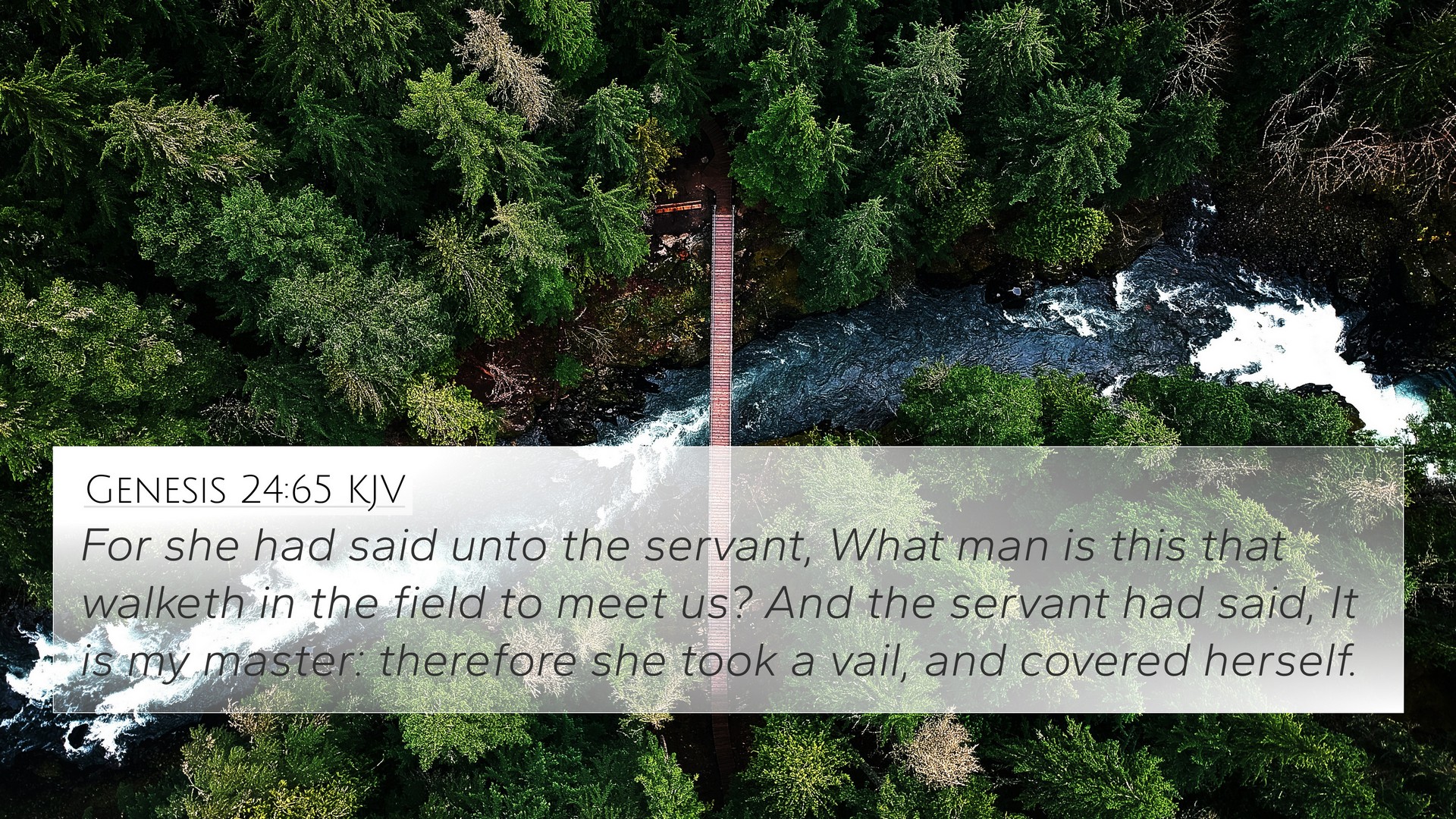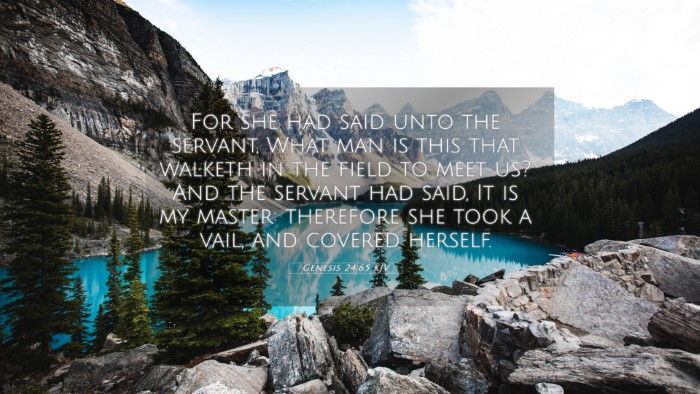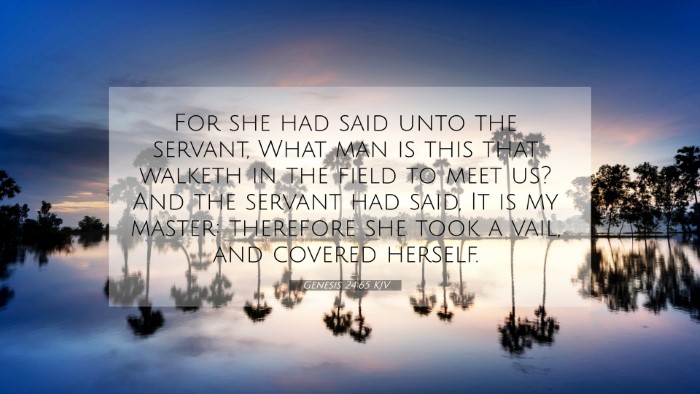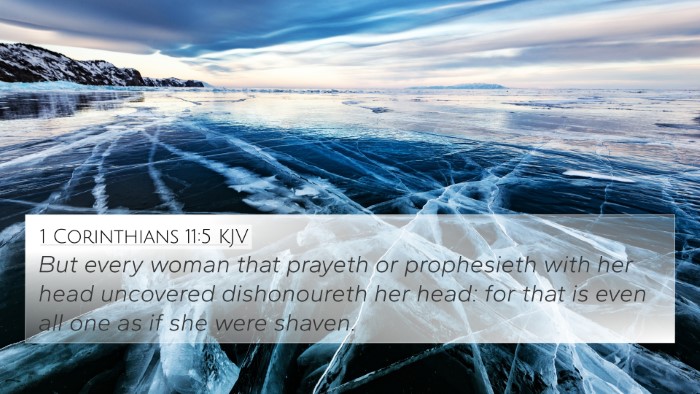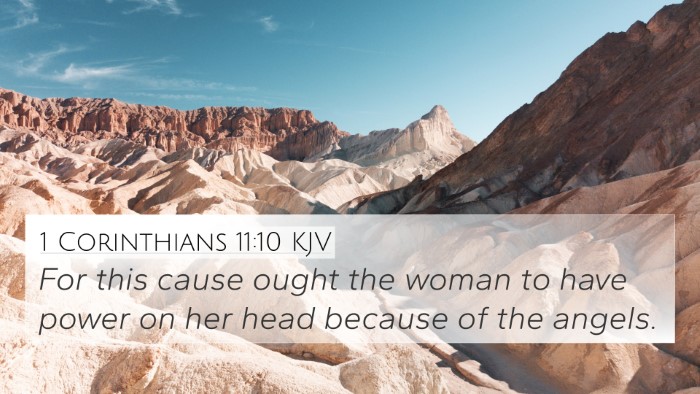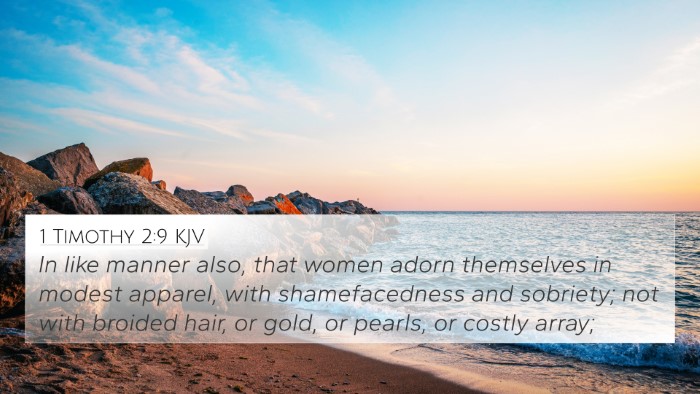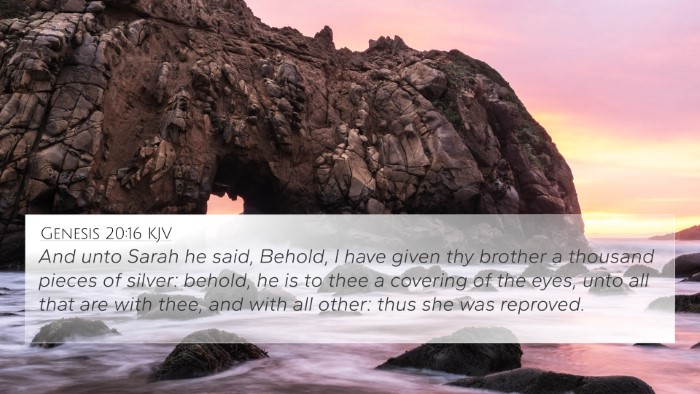Summary and Interpretation of Genesis 24:65
Genesis 24:65 states: "For she said unto the servant, What man is this that walketh in the field to meet us? And the servant had said, It is my master: therefore she took a veil, and covered herself."
This moment occurs in the narrative of Abraham's servant searching for a bride for Isaac. This brief encounter is rich in symbolism and illustrates key themes prevalent in the Scripture, such as divine guidance, faith, and the unfolding of God's promises.
Commentary Insights
Various public domain commentaries provide profound insights into this verse:
- Matthew Henry: Henry emphasizes the importance of divine providence in leading the servant to Rebekah. The moment signifies the culmination of the servant's prayer for guidance, showcasing the hand of God in securing a future for Isaac. The act of veiling represents modesty and respect, a cultural practice that conveys honor.
- Albert Barnes: Barnes reflects on the cultural implications of veiling in ancient Near Eastern societies, illustrating how it relates to women’s roles during courtship and marriage. He also notes that Rebekah’s inquiry about the approaching man indicates her curiosity and recognition of the moment's significance, hinting at her readiness to fulfill her role in God's plan.
- Adam Clarke: Clarke comments on the significance of the servant's introduction of Isaac as "my master," which denotes authority and respect. He elaborates that this serves as a precursor to the marital relationship's dynamics, where Rebekah's immediate response signifies her acceptance and commitment to the covenantal relationship ahead.
Thematic Connections
This verse provides a glimpse into several overarching biblical themes:
- Divine Guidance: The servant’s journey reflects the broader theme of seeking divine will in important life decisions.
- Faith and Promise: Rebekah’s acceptance aligns her with God’s promise to Abraham and Isaac, emphasizing faithfulness in God’s plan.
- Marriage and Family: The cultural customs surrounding courtship and marriage profoundly shape the narrative, highlighting God's intention for family and lineage.
Bible Verse Cross-References
Genesis 24:65 connects with various other scripture passages, enhancing understanding through thematic and narrative parallels:
- Genesis 2:24: Highlights the establishment of marriage as a foundational relationship in Scripture.
- Genesis 12:2-3: The promises made to Abraham serve as the backdrop for the covenant in which Rebekah is now playing a crucial role.
- Genesis 22:17: The blessings on Abraham’s descendants reaffirm the continuity of God’s covenant through Isaac.
- Isaiah 54:5: Relates to God as the creator and husband of Israel, mirroring the theme of union.
- Matthew 19:5: Jesus quotes Genesis 2:24, affirming the significance of the marital bond.
- Romans 9:7-8: Discusses the lineage of Abraham, connecting Rebekah to the larger covenantal narrative.
- 1 Peter 3:5-6: Alludes to the virtue and character of women of faith as seen in biblical narratives.
Conclusion
Genesis 24:65 aptly illustrates a pivotal moment in the unfolding story of Abraham’s lineage, characterized by respect, divine orchestration, and the fulfillment of God's promises. The moment encapsulated in this verse resonates throughout Scripture, providing valuable insights into marriage, divine guidance, and the import of abiding faith.
As you explore this verse alongside its connections in the Bible, consider utilizing tools for cross-referencing such as a Bible concordance or a Bible cross-reference guide to enrich your study. Understanding the roles of biblical characters and the overarching themes can enhance both personal reflection and communal discussions in church settings.
